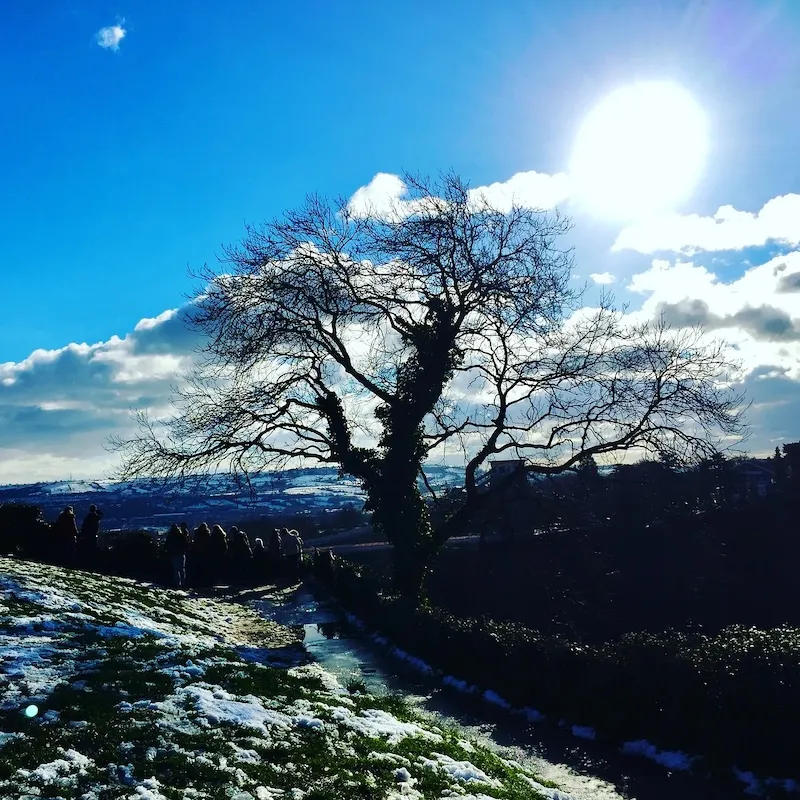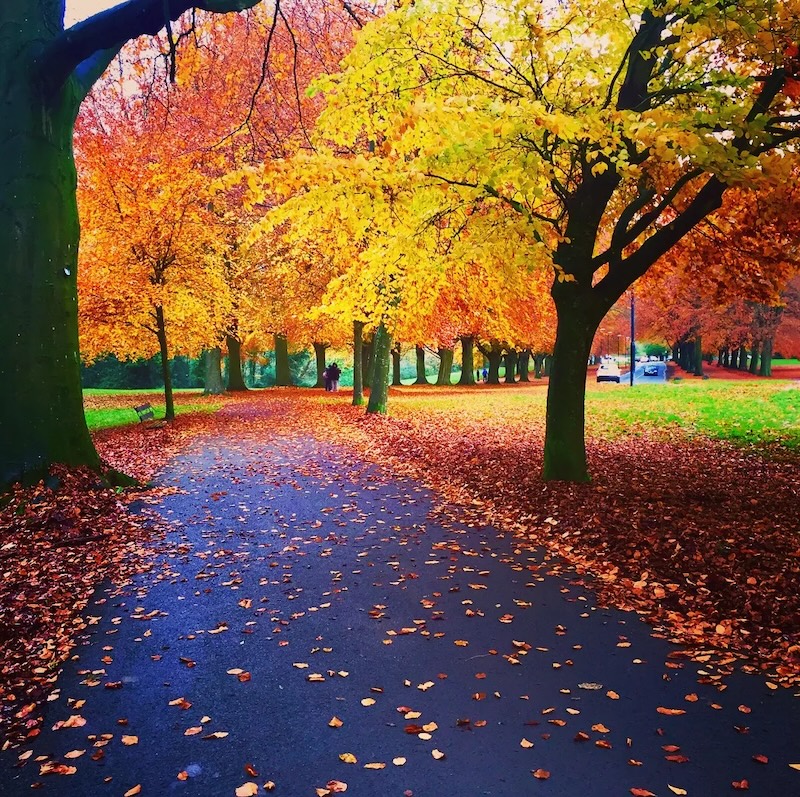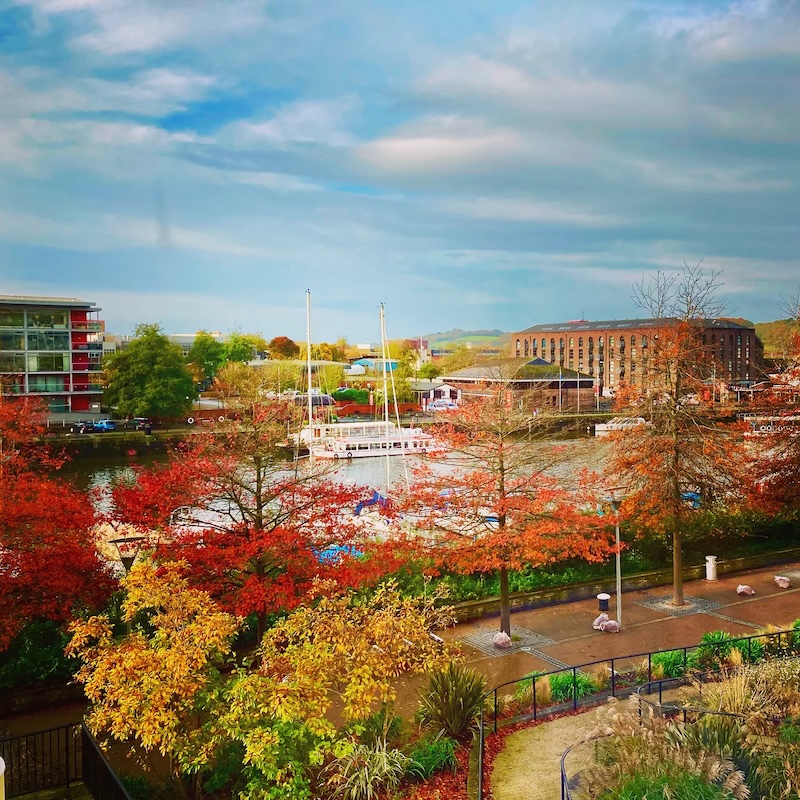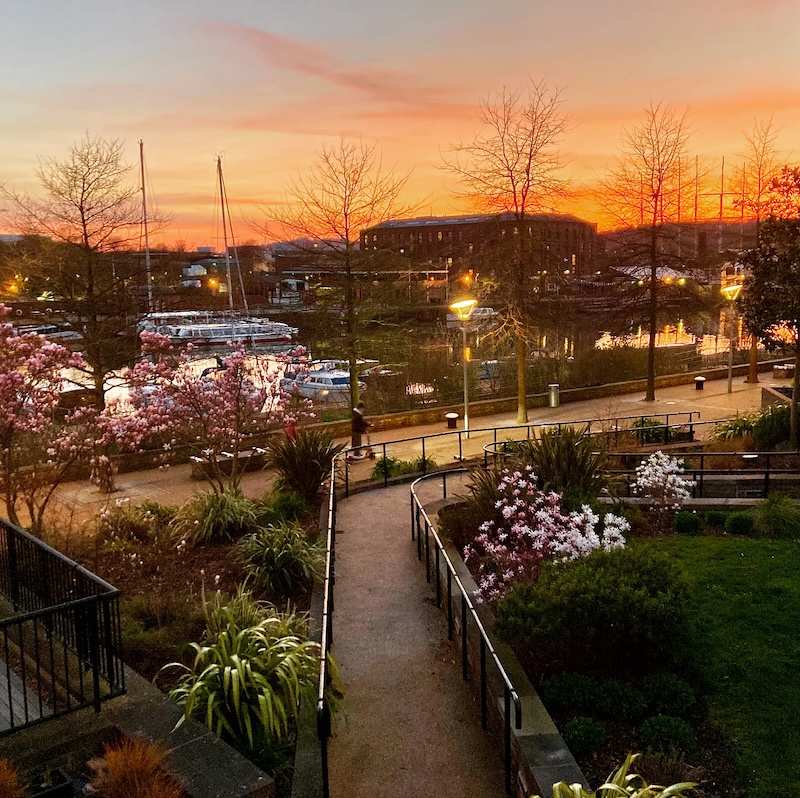Death is the mother of beauty
I’m not good with poetry. I can barely make sense of it most of the time. But every now and again, a line grabs me and forces me to read the poem again. Suddenly, it all makes sense. Until I find that line, it is all poetic nonsense.
Someone sent me Sunday Morning by Wallace Stevens to read.
Complacencies of the peignoir, and late
Coffee and oranges in a sunny chair,
And the green freedom of a cockatoo
A woman is sitting in her garden. She’s having coffee and oranges. There’s fruit on the trees, and a cockatoo. Lovely, I thought. It all sounds very nice. But so what?
I struggled through the poem until…
Death is the mother of beauty
Wait, what?

I have experienced plenty of beauty in my life. It was all very nice, but what does death have to do with it? Does death create beauty? Would we still have beauty if we did not have death? Why can’t we have mystic beauty forever?
I had to start over to find the answers.
Our lady is sitting in her garden on a Sunday morning, when she is supposed to be in church. She is enjoying the beauty and her dreams, until the dark dreams start to creep in.
She dreams a little, and she feels the dark
Encroachment of that old catastrophe,
What is that old catastrophe? It’s death, isn’t it? Death is coming.

At first, she is afraid and mourns the things that will be lost when she leaves this life behind. Her delightful garden. Her cockatoo.
The pungent oranges and bright, green wings
Seem things in some procession of the dead,
Christians tell us that life is just a brief preamble while we wait for everlasting life in heaven. But how do we know heaven is coming? We have no evidence for it. People talk about it, and we can dream about it. But how do we know?
What is divinity if it can come
Only in silent shadows and in dreams?
The narrator reminds us that there is plenty of beauty to cherish here on Earth, without the thoughts of heaven. Plenty of natural beauty. Plenty of ripe fruits.
Shall she not find in comforts of the sun,
In pungent fruit and bright, green wings, or else
In any balm or beauty of the earth,
Things to be cherished like the thought of heaven?
Would we want life to be all delightful, all the time? Heaven is supposed to be always joyful, but I expect it would get boring without the ups and downs that we experience down here on Earth. We need some bad to accentuate the good.
Is there no change of death in paradise?
Does ripe fruit never fall? Or do the boughs
Hang always heavy in that perfect sky
Would we even recognise the good without the bad to contrast it with? Do they even have bad in heaven? Or is it just good that goes on forever and ever?

Just imagine. You wake up on a Sunday morning, and there’s coffee and oranges, and then the same thing the next day. And the day after that. And this will go on forever because you are immortal now.
We need to experience those ups and downs to appreciate the ups. It will soon get boring if every day is filled with sunshine.
Lao Tzu had something to say about this.
When people see some things as beautiful,
other things become ugly.
When people see some things as good,
other things become bad.
Being and non-being create each other.
― Lao Tzu, Tao Te Ching
A first reading of Lao Tzu says that perhaps if we get rid of beauty, it will save us from the negative emotions that come with ugliness. But do we really want to get rid of beauty?
This takes us back to the lines that helped me understand what Sunday Morning is all about.
Death is the mother of beauty; hence from her,
Alone, shall come fulfilment to our dreams
And our desires.
We can’t appreciate the good without some bad to contrast with it, and death is the worst bad of all. The promise of death encourages us to cherish life with all its beauty. Without death to focus our desires, the beauty will lose its charm.

The bough of summer and the winter branch.
These are the measures destined for her soul.

